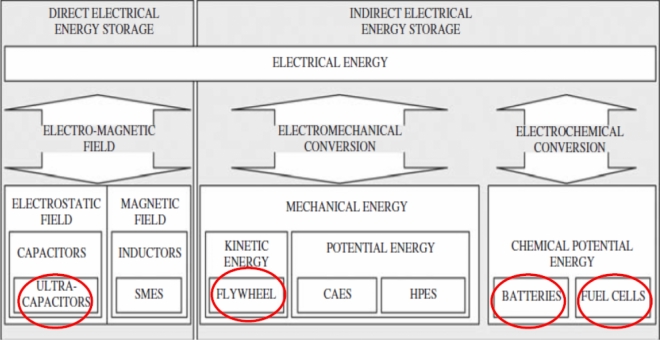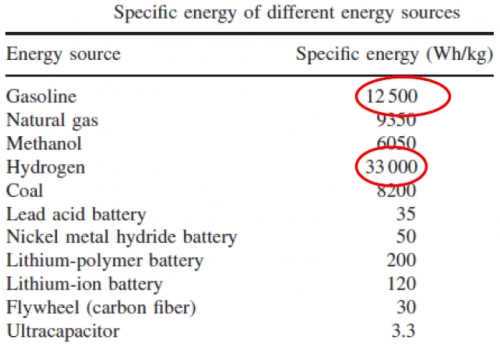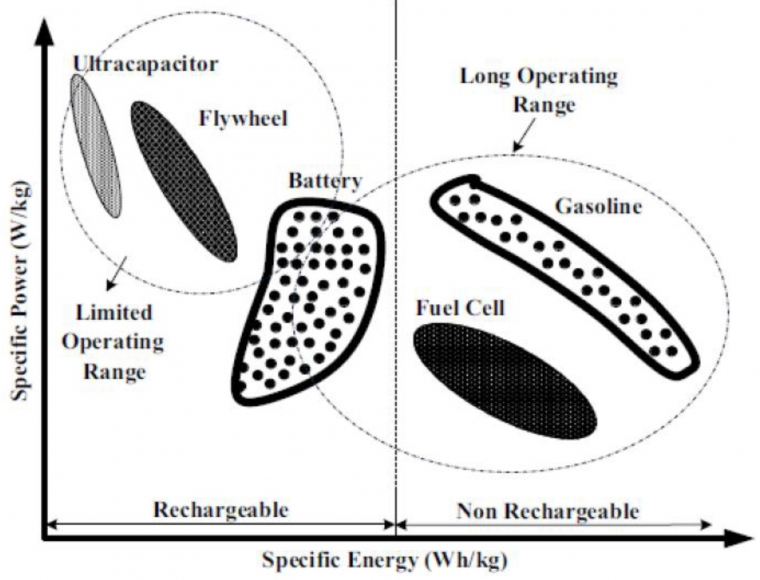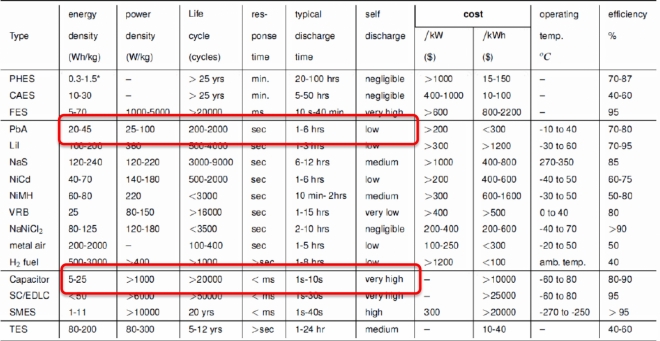3.1 - Energy Storage System
Energy storage technologies and devices
“Energy storages” (ESS) are defined as the devices that store energy, deliver energy outside (discharge), and accept energy from outside (charge).
There are several types of energy storages that have been proposed for electric vehicle (EV) and hybrid electric vehicle (HEV) applications. These energy storages, so far, mainly include chemical batteries, ultracapacitors or supercapacitors, ultrahigh-speed flywheels and the fuel cell.

In ESS, there are some Key Parameters:
Specific Energy (Wh/kg)
Specific energy is defined as the energy capacity per unit battery weight(Wh/kg). The theoretical specific energy is the maximum energy that can be generated per unit total mass of the cell reactant.
Specific Power (W/kg)
Specific power is defined as the maximum power of per unit battery weight that the battery can produce in a short period. Specific power is important in the reduction of battery weight, especially in high power demand applications, such as HEVs.
Comparative of different Energy source is shown in the graphic below.



In order to deepen these energy storage systems (ESS), go through an overview of the four main technologies used in the electric vehicle (EV/HEV):
- BATTERIES
- FUEL CELL
- ULTRACAPS
- FLYWHEEL
